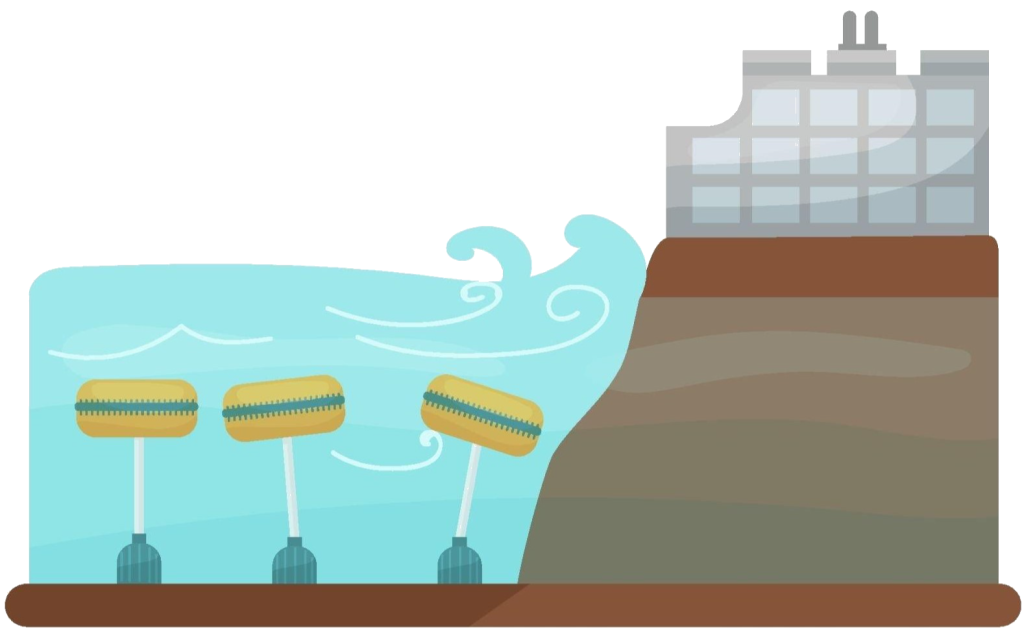Wave Energy Conversion Systems

Introduction to Wave Energy Conversion Systems
Wave energy conversion systems utilize the power of ocean waves to generate electricity. These systems capture the kinetic energy of waves and convert it into usable electrical energy. Wave energy conversion is a renewable energy technology that has the potential to contribute to a sustainable energy future.
Question 1: What are Wave Energy Conversion Systems?
a) Systems that convert wave energy into mechanical energy
b) Systems that convert wave energy into electrical energy
c) Systems that convert wave energy into thermal energy
Answer: b) Systems that convert wave energy into electrical energy
Types of Wave Energy Conversion Systems
There are different types of wave energy conversion systems, including:
- Point Absorbers: These systems use buoyant devices that move up and down with the wave motion, driving a power take-off system to generate electricity.
- Attenuators: These systems consist of multiple connected segments that move with the waves, generating electricity through hydraulic or mechanical systems.
- Overtopping Devices: These systems use wave action to fill a reservoir, and the stored water is released through turbines to generate electricity.
Question 2: What are some types of Wave Energy Conversion Systems?
a) Solar panels and wind turbines
b) Point Absorbers, Attenuators, Overtopping Devices
c) Tidal turbines and ocean thermal energy conversion systems
Answer: b) Point Absorbers, Attenuators, Overtopping Devices
Working Principles of Wave Energy Conversion Systems
Wave energy conversion systems work based on different principles:
- Converters that use the relative motion between parts of a device to generate electricity, such as point absorbers and attenuators.
- Converters that utilize wave height differences to capture energy, such as overtopping devices.
- Converters that rely on the resonance of wave motion to extract energy, such as oscillating water columns.
Question 3: What principles do Wave Energy Conversion Systems rely on?
a) Generating heat from wave energy
b) Harnessing the relative motion or wave height differences
c) Extracting energy from ocean currents
Answer: b) Harnessing the relative motion or wave height differences
Advantages of Wave Energy Conversion Systems
Wave energy conversion systems offer several advantages:
- Renewable and Clean: Wave energy is a renewable and clean source of power, reducing reliance on fossil fuels and decreasing greenhouse gas emissions.
- Predictable and Consistent: Waves are relatively predictable, providing a consistent energy source that can be integrated into the power grid.
- Minimal Visual Impact: Wave energy devices can be located offshore, minimizing visual impact on coastal areas.
Question 4: What are some advantages of Wave Energy Conversion Systems?
a) Non-renewable and polluting
b) Renewable and predictable
c) High visual impact
Answer: b) Renewable and predictable
Challenges and Limitations
Wave energy conversion systems also face challenges and limitations:
- High Costs: Developing and deploying wave energy technologies can be costly.
- Harsh Marine Environment: Operating in the ocean poses challenges in terms of device durability and maintenance.
- Grid Integration: Connecting wave energy systems to the power grid and managing intermittency require careful planning.
Question 5: What are some challenges and limitations of Wave Energy Conversion Systems?
a) Low costs and easy maintenance
b) Harsh marine environment and grid integration challenges
c) High reliability and unlimited resource availability
Answer: b) Harsh marine environment and grid integration challenges
Case Studies
Well Done !